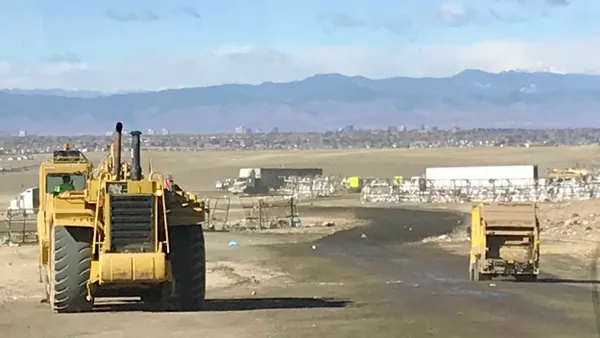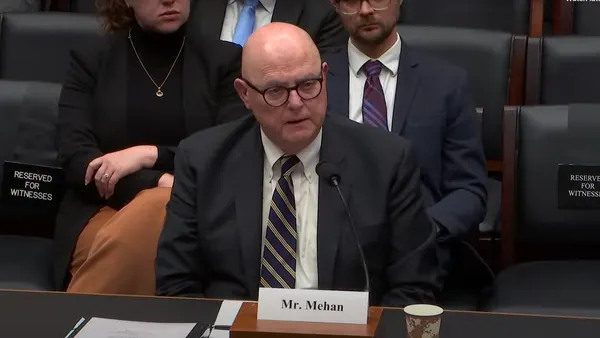Dive Brief:
- The Roxbury Environmental Action Coalition released a report alleging that the state of New Jersey and the owners of the Fenimore landfill in Roxbury, NJ never tested houses near to the landfill for explosive gases. The coalition is comprised of concerned Roxbury community members.
- According to NJ.com, the report compiled by the organization contains over 1,400 pages of documentation supporting a long list of criticisms against the handling of the landfill.
- The documents address hazardous chemical removal: An environmental scientist advises that toxic materials be removed from the site due to health risks to residents. The DEP refuses to transport it out, citing that moving the waste would release chemicals into the community, and maintains that capping the site is sufficient.
Dive Insight:
DEP spokesman Larry Ragonese told NJ.com that excavating the site would "affect all residents of Roxbury and residents in more than 30 municipalities in three counties, disrupting lives and businesses, and potentially causing a public health crisis for the duration of the excavation." NJ.com notes that a basis for that statement was not given. He continued that capping the site is the "best long-term solution." Opponents disagree with capping due to the alleged ongoing risks facing residents.
The coalition suspects the health issues will not disappear after the site is capped. In addition, the report estimates the cost of capping the site to be around $4.5 million for the first year. Although the amounts go down each year after the initial capping occurs, the maintenance and cost of running the site will continue into 2044. The president of the coalition, Bob Schultz, told NJ.com that "It could actually cost more to cap the landfill than to excavate it."
The troubled landfill has been a source of community discord for years. Residents allege a series of health issues are the result of toxic fumes released from within the site, while the Attorney General filed a lawsuit against the site owners on behalf of the DEP, alleging violations to state solid waste and air pollution regulations, among other things.








